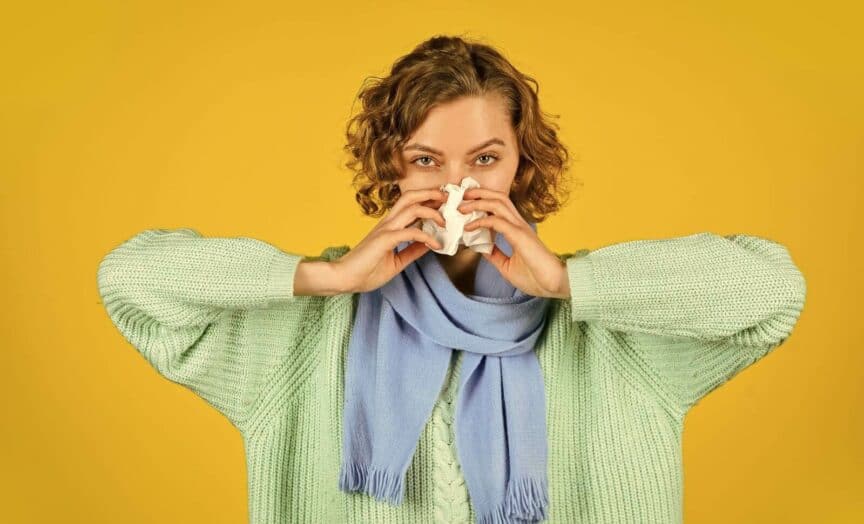Winter is here. This time of year means lower temperatures, dryer air, and tends to include sinus issues. Whether it is the common cold or the flu, winter months can be filled with dealing with symptoms like a runny nose, sore throat, and congestion. The symptoms can cause greater alarm now with COVID. Understanding sinus issues, why exactly they are worse in the winter and what can be done about it can be useful. Exploring the answers to these questions can help you navigate winter months as healthily and safe as possible.
Sinus Problems in the Winter
Low temperatures do not directly produce sinus issues. But the dry air as well as staying in doors as a result of cold weather can exacerbate symptoms. The following common sinus related issues are worsened in the winter for a few reasons:
- Nasal congestion: the nose gets warm and humidifies the air that is inhaled. The moisture evaporates from the lining of the nasal passage and when exposed to dry air, the lining of the noise can experience irritation in inflammation. This results in producing excess mucus which causes a runny nose and congestion.
- Colds & sinus infections: excess mucus can obstruct the sinuses as well as not drain which can cause bacteria to develop. This can produce a sinus infection.
- Flu: winter months often involve people staying indoors more with the heat on. This allows dry air to circulate which can further impact the lining of the nose and reduce the mucus membrane’s capacity to block viruses from entering the nasal airways.
- Ear Infections: ear infections are typically caused by bacterial or viral infections in the middle ear. Ears are especially vulnerable to the impact of colder temperatures because they are exposed. Cold weather can affect blood flow in the ears, trigger tinnitus, or cause pain when exposed for a long time.
Also, because people stay in more and live in close proximity to others, infections can spread more easily. This enables people to contract a cold or the flu more easily.
Treating Sinus Issues
There are effective ways you can self-manage your sinus issues and alleviate symptoms. It is important to be proactive and address symptoms as soon as you experience this which can prevent infections. A few strategies you can use include:
- Nasal irrigation: there are several ways you can drain and moisturize your nasal passages. This includes using a neti pot or other device that allows you to drain the nostrils with water, breathing in steam, using a vaporizer etc.
- Decongestants: there is a range of over the counter decongestants you can use. Decongestants alleviate nasal congestion and can help alleviate common symptoms from the flu or common cold.
- Additional tips: use a humidifier in your living space, drink plenty of water and stay hydrated, layer up and stay warm.
Iti is important to know when to see a doctor. If symptoms persist or are severe (headache, facial pain), be sure to be evaluated. If you experience symptoms that last more than 10 days or experience a fever longer than 3 days, you need to seek medical attention. You may need antibiotics or an infection which can treat your symptoms effectively.
Tips to Stay Healthy During the Winter
There are a number of safety measures you can integrate in your everyday life. The following tips are useful during winter months and can help you stay healthy:
- Stay warm: it is important to stay warm with such low temperatures. You can do this by not staying outdoors for a long period of time, bundling up and wearing hats as well as gloves and scarves.
- Yearly flu shot: stay up to date on vaccines and flu shots. Check to see if boosters are available. The seasonal flu shot reduces your risk of catching the flu and experiencing severe symptoms.
- Wash hands: wash your hands regularly and after any activity. This helps prevent bacteria from building up and making you sick.
Additional tips include to use hand sanitizer, clean high touch surfaces, drink hot tea, wear a mask in public spaces, and get enough sleep. These strategies can help protect your health as you navigate the winter months.

